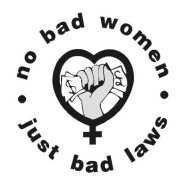The debate over the decriminalisation and legalisation of prostitution is currently a contested topic in many countries of the world and although supporters and detractors have made convincing arguments to support their claims, these rarely appear together under the same piece of work. The following essay is an evaluation of Jean D’Cunha’s article: Demand for Legitimising of Prostitution in the West: A Critique, that can be found in the book edited by Prabha Kotiswaran: Sex Work in 2011. The chapter clearly presents the demands from feminists and prostitute groups in relation to the decriminalisation and legalisation of sex work, followed by D’Cunha’s own arguments that refuse such claims. It was the clarity and simplicity in the presentation of ideas along with the controversy of D’Cunha’s claims that made me consider analysing her work.
The text will firstly present the main concepts and arguments used by the author to explain the position taken by feminists and prostitute groups in the defence for the decriminalization and legalisation of sex work. It will be followed by a critical analysis of D’Cunha’s arguments against the demand for decriminalisation and legalisation of prostitution by the International Committee for Prostitute’s Rights (ICPR) on the grounds of freedom of choice, financial autonomy and sexual self-determination of sex workers. The final part of this review will look at the strengths and limitations presented by D’Cunha’s arguments and the way in which her partial view over the debate blurs a positive outcome for the removal of the stigma that lies over prostitution.
Analysis.
Jean D’Cunha’s article is a critique to the justification given by prostitute groups and feminists for the decriminalisation and legalisation of sex work. D’Cunha specifically highlights that both the legalisation rationale in India and the decriminalisation debate of prostitution in the West share common grounds to support capitalist norms and patriarchy. D’Cunha argues against the western claim of decriminalisation proposed by the International Committee for Prostitutes’ Rights (ICPR) that demands for the total removal of any sanctions against prostitutes and recommends for the recognition of third party actors such as brothels and pimps to be regulated within the labour law instead of criminal law. In D’Cunha’s opinion, the ICPR’s view on decriminalisation endorses the sexual objectification and commodification of women. Among the reasons presented by western groups in favour of decriminalisation of prostitution are: sex work as women’s occupational choice and a way for women’s freedom, financial autonomy and sexual self-determination. Prostitute groups along with western groups in favour of decriminalisation believe that changing the criminal status of sex work would enable prostitutes to press for welfare measure such as health care, social security and educational facilities for their children as well as the elimination of the negative stigma attached to both sex workers and prostitution. D’Cunha defends that because brothel businesses rely on profit and accumulation through the exploitation of women’s body it is unlikely that they would provide non-exploitative or welfare conditions of work for prostitutes. Her position is nevertheless contradictory because that is precisely what occurs when the business is not regulated. When prostitution and third-party actors involved in sex work are seen as criminals, the activities that they perform are kept in the shadow, so it is more likely for prostitutes to suffer from violence and abuse by a system that it is not regulated. On the other hand, if there are laws that control brothels and the practise of prostitution, there is more accountability for cases of exploitative conditions of work.
 One of the main arguments made by D’Cunha against the claim for occupational choice by the ICPR is that engaging in prostitution does not imply free choice, it is rather forced by a system of inequalities that subordinates women within the labor market. This is true since women around the world have traditionally been placed in the household fulfilling roles such as mothers, wives and caretakers and their access to the labor market has been slow with uneven rights compared to men. In many parts of the world women who have access to the formal labor market are paid according to their gender and not to their worth and are often stigmatised and harassed (ILO, 2016/17). It is due to those factors that according to D’Cunha a big proportion of women who are engaged in prostitution have done so forced by that same system of inequalities and not as part of their free choice. D’Cunha is focusing in those women who have been forced into prostitution by coercion and trafficking, nevertheless, there are women who have chosen to become prostitutes because they perceived sex work as a way to achieve independence and financial autonomy. If women are not paid for their work within the household, because housework has traditionally been performed by women without any economic retribution, it is understandable that they might seek for other sources of income. The problem of course is that sex has also been performed by women in the private sphere as part of their marital duties, therefore, claiming for payment from something that has been performed for so long without economic retribution is regarded as an exhibition of disloyalty (Schwarzenbach 1990-91).
One of the main arguments made by D’Cunha against the claim for occupational choice by the ICPR is that engaging in prostitution does not imply free choice, it is rather forced by a system of inequalities that subordinates women within the labor market. This is true since women around the world have traditionally been placed in the household fulfilling roles such as mothers, wives and caretakers and their access to the labor market has been slow with uneven rights compared to men. In many parts of the world women who have access to the formal labor market are paid according to their gender and not to their worth and are often stigmatised and harassed (ILO, 2016/17). It is due to those factors that according to D’Cunha a big proportion of women who are engaged in prostitution have done so forced by that same system of inequalities and not as part of their free choice. D’Cunha is focusing in those women who have been forced into prostitution by coercion and trafficking, nevertheless, there are women who have chosen to become prostitutes because they perceived sex work as a way to achieve independence and financial autonomy. If women are not paid for their work within the household, because housework has traditionally been performed by women without any economic retribution, it is understandable that they might seek for other sources of income. The problem of course is that sex has also been performed by women in the private sphere as part of their marital duties, therefore, claiming for payment from something that has been performed for so long without economic retribution is regarded as an exhibition of disloyalty (Schwarzenbach 1990-91).
One of the limitations in D’Cunha’s argument regarding the freedom of choice in prostitution is that she focuses only in gathering examples from women who have been forced into prostitution through abuse and coercion, disregarding the experiences and voices of those who have done so freely. She argues that women prostitutes not only do not have free will when forced into prostitution, but they also find other curbs to their freedom such as denial of their children’s custody as they are being regarded as less responsible, loving and deserving than other women who do not practise prostitution (ICPR, 1986). Yet, when women prostitutes are asked about how they feel in regards to their profession they highlight the contribution that sex work had in their personal and family financial independence allowing them to clothe, feed and educate their children as well as earn independently for themselves (SWASA, 2016). It is interesting how D’Cunha argues against the decriminalisation of sex work which would contribute to the elimination of the stigma that surrounds prostitution, helping to normalise the rights of those women who are often denied of their human dignity when regarded as criminals. Women who choose to work as prostitutes do so because they have a choice, they could have decided to engage in criminal acts such as pickpocketing or drug smuggling, nevertheless they decide to exchange their skills and effort for a monetary sum.
 D’Cunha is also sceptical in relation to the argument provided by the ICPR that prostitution brings financial autonomy. According to her, women prostitutes are dependent on the client’s purchasing power and the general market forces such as client availability in a certain place at a certain time. However, those same variables apply to every business, hotels and hospitality businesses in holiday destinations such as Greece, Spain and Portugal also see their clientele decreasing when the summer season is over. Earning more or less due to client’s purchasing power should not be the focus on women’s financial autonomy but the fact that prostitution provides them with a platform that allows them to exchange their skills and effort for a salary that helps them stand on their feet independently.
D’Cunha is also sceptical in relation to the argument provided by the ICPR that prostitution brings financial autonomy. According to her, women prostitutes are dependent on the client’s purchasing power and the general market forces such as client availability in a certain place at a certain time. However, those same variables apply to every business, hotels and hospitality businesses in holiday destinations such as Greece, Spain and Portugal also see their clientele decreasing when the summer season is over. Earning more or less due to client’s purchasing power should not be the focus on women’s financial autonomy but the fact that prostitution provides them with a platform that allows them to exchange their skills and effort for a salary that helps them stand on their feet independently.
Along with the rejection over the financial autonomy argument, D’Cunha also criticises the ICPR statement on sexual self-determination of prostitutes. She argues that not only prostitutes are considered a human resource from which men can appropriate sexual pleasure but also that they have no control over who their clients are or the pace of work. This might be sadly true in cases of sex and human trafficking where women and children are often forced to use their bodies until they have paid back their initial purchased debt (Hughes, 2000:631). Nevertheless, it cannot be generalised to the whole spectrum of women that are engaged in prostitution. D’Cunha does not pay attention to the fact that in any sexual transaction there are two or more bodies involved, she only regards at men as receivers of sexual pleasure, but why should it be assumed that women are just passive actors who do not find satisfaction in the sexual act? The author also pays attention to the lack of control over the kind of sexual activity demanded by the client, leaving women prostitutes to satisfy the demand of those men who might have different fantasies that cannot be fulfilled with their wives or partners such as domination, bondage or kinky activities. D’Cunha is again generalising what it might be considered as traditional sex practises as there is not only an exclusive type of sex. This might take different forms such as verbal, physical or spiritual sex, but ultimately, regardless of the sex practise there has to be a recognition that women prostitutes do have agency when choosing their clients and also in setting the limits of the sexual transaction, unless they act under coercion or intimidation which turns into something completely different linked to the deprivation of basic human rights.
 The final point made by D’Cunha is in relation to the struggles suffered by women prostitutes when treated as criminals. Because their “work” is regarded as illegal, they are subjected to abuse not only by clients but also by the authorities that are meant to protect them. Women prostitutes are often subjected to health problems related to long hours of work, lack of rest, violence and poor sanitation among many other issues which also include the inability to see themselves as human beings due to the perception and stigma placed over prostitutes as immoral women and criminals. This line of work in D’Cunha’s argument can be regarded as a strength as she acknowledges the problems faced by women prostitutes when performing their profession. In admitting that women prostitutes encounter many problems due to the stigma placed over sex work she is acknowledging the limitations posed by a system that criminalises prostitution. Yet, a limitation that I have found in D’Cunha’s article that is repeated through her argument is that she only considers the experiences of those women who have been forced into prostitution through trafficking and coercion, failing to explain the experiences of women who have freely chosen to become sex workers. In the case of forced prostitution and human trafficking the conditions of prostitutes are those of humiliation and abuse because their basic human rights: personal liberty, security and dignity are being compromised (UN, 1948). The fact that those women might experience lack of personal freedom, financial autonomy and sexual self-determination cannot be extrapolated to the cases when women freely decide to become sex workers.
The final point made by D’Cunha is in relation to the struggles suffered by women prostitutes when treated as criminals. Because their “work” is regarded as illegal, they are subjected to abuse not only by clients but also by the authorities that are meant to protect them. Women prostitutes are often subjected to health problems related to long hours of work, lack of rest, violence and poor sanitation among many other issues which also include the inability to see themselves as human beings due to the perception and stigma placed over prostitutes as immoral women and criminals. This line of work in D’Cunha’s argument can be regarded as a strength as she acknowledges the problems faced by women prostitutes when performing their profession. In admitting that women prostitutes encounter many problems due to the stigma placed over sex work she is acknowledging the limitations posed by a system that criminalises prostitution. Yet, a limitation that I have found in D’Cunha’s article that is repeated through her argument is that she only considers the experiences of those women who have been forced into prostitution through trafficking and coercion, failing to explain the experiences of women who have freely chosen to become sex workers. In the case of forced prostitution and human trafficking the conditions of prostitutes are those of humiliation and abuse because their basic human rights: personal liberty, security and dignity are being compromised (UN, 1948). The fact that those women might experience lack of personal freedom, financial autonomy and sexual self-determination cannot be extrapolated to the cases when women freely decide to become sex workers.
Conclusion.
What is shocking about D’Cunha’s article is that even though she is admitting the struggle of women prostitutes in the development of their professions she is at the same time denying that decriminalising and legalising prostitution would contribute to the improvement of the rights of those women. The reason for the current system of abuse towards women prostitutes is because there is a social and political structure that criminalises prostitution, pushing those women to perform their “work” at the margin of the law where they are more vulnerable to suffer from abuses and violence. How are women prostitutes meant to report a situation of abuse if that same system they are reporting to, criminalises them for what they do? The debate should not be focused on prostitution as morally right or wrong, instead, it should pay attention to the way in which through decriminalisation and regularisation of women’s work as prostitutes, their rights could improve significantly. When debating about decriminalisation and legalisation of sex work, the aim should be finding a common ground that leads to the reduction of cases of abuse and violence along with the improvement of sex workers rights and the elimination of the stigma placed over prostitutes.

